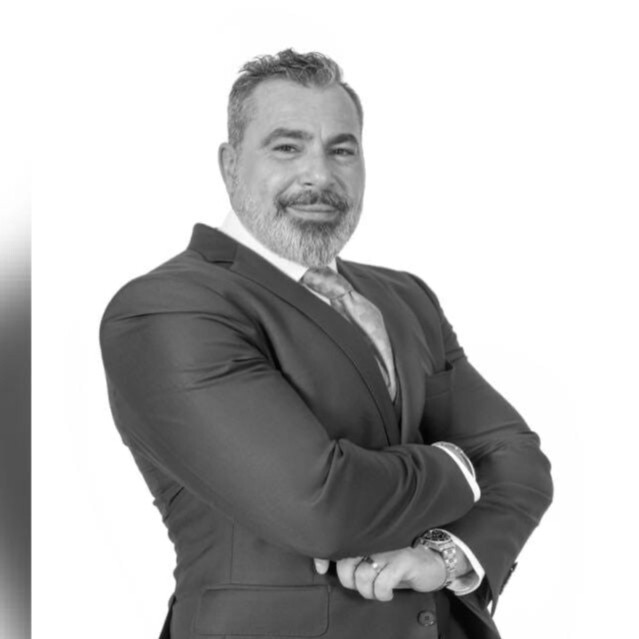
In ITIC’s latest Industry Insights interview, we hear from Dr Hayder Zubaidy of Occucare Middle East, about the challenges for assistance companies operating during the pandemic and the impact they may have on the future of global networks.
At a time when connecting face-to-face isn’t as simple as we are used to, we have been taking the opportunity to catch up with members of our ITIC community, to find out how they are navigating the current crisis. You can read our previous interviews with Eva Kluge, Dexter Tan, Carlos Salinas, Bettina Vadera, Women in Travel Insurance (WITI) Manjit Rana, Amy Villalobos, Volker Lemke and Dr Kimberley Chawla
Dear seniors, brothers, colleagues, my name is Dr Hayder Zubaidy.I’m proud to talk to you today about the Covid crisis. I was honored to be asked to give a small speech about the challenges we had during the Covid crisis. To talk to such senior people like yourself, the ones who are leading healthcare around the globe, responsible for people’s safety, responsible for the wellbeing of people, and covering health operations around the globe, helping people to receive treatment around the globe. So it’s an honor for me to speak to you.
Q: How has the coronavirus pandemic impacted your products and services to date?
I believe that each and every one of our companies has had a very challenging few months. Many of our operations, and many requirements, have been raised during the Covid crisis. Many attempts, many evacuations. So we tried to work hard to meet others’ expectations. But we were hit with the crisis, and the turbulence caused by the crisis. So I believe that the first challenge we had was the logistic challenge. We always had the challenge of time – I don’t think we had that more during the crisis.
Our main challenge was the logistic challenge, which was the easy piece of the puzzle in the past, but with the Covid crisis, we hit logistic challenges we didn’t even consider in the past, like airlines. So airlines canceled some trips. Airlines changed their routes. Airlines delayed. So the airlines, which used to be the helpful part in the evacuation, became a struggle. Adding to that, [were] a country’s rules. Every day, we had new rules for different countries. So you decide the trip, you co-ordinate, you provide all your logistics. And suddenly you are hit with a change of the rules in one of the countries. So you had to reschedule your trip. You had to re co-ordinate and liaise. So this was a major challenge. In many cases, we had a trip, which has three stops, then during the third or second stop, there were changes in the country’s rules. This affected patient safety. We had to find a different route. We had to find a support on the second stop, [and] on the third stop to make sure that the patient would reach you safely.
The second challenge was the safety challenges. And again, it’s related to the rules. So in many cases, we had to make sure that the patient is – whether it was a non covid situation like a cardiac, surgical or whatever – we had to make sure that the patient is Covid free, find the right test to prove that the patient is Covid free and try to find a hospital which is safe for the patient. So the patient has to prove that he’s Covid free. The hospital has to prove that it’s Covid free, or the patient is safe. And that was a very difficult situation because all countries just focused all their resources, [such as] intubation on [their] citizens wellbeing. So all the resources were [going] in one direction, and that direction was fighting the Covid cases. In many cases, we had patients suffering from not finding the right hospitals because as a result of Covid in many countries, it was announced that only emergency cases will be treated. Other than that, all services were seized or stopped. So it was another challenge.
The third challenge which we faced, and I think we’ll keep facing for the next few, maybe couple, of years, will be the financial challenges. As we know, many of the hospitals, healthcare providers decided to restructure. So the restructuring process was to lay off some people, trying to minimize staff, trying to maybe restrict their services. So this was another challenge. At the counter side, the company itself is facing some issues with cash flow, some issues with non-delivery of services, delayed contracts, delayed payment, which hit almost everybody, and that included insurance companies. The insurance companies were [too] busy to give some approvals and approve some routes. All that, adding to many other factors, was a nightmare for us trying to meet our goal of patient safety and peoples’ well-being.
Q: What do you think the future of the travel insurance industry might look like?
Will the world be the same? Will our activities, will our services support everything? Will it be the same after Covid? I don’t think so. So now I think it’s the right time to sit and find the solution. One of the major solutions we will have is something like ITIC, where leaders from all over the globe leading different companies in different countries with different services, meet together.
I think the future will definitely be for lobbying and finding partners. In the past, we used to think that we have to try to increase the countries that we are covering. Try to increase the services around the globe for covering or finding the right agents with the right policies and procedures around the globe. So our cases will be dealt [with] by our people. I think that in the near future, we should be more flexible, number one, just to make sure to minimize the resources and maximize the utilization of these resources. New companies in a different country or different countries helping us to provide the service. As an example, I am today the chairman of Occucare, Middle East, which is a company based in Dubai who used to provide services in UAE, Saudi Arabia, Bahrain, Qatar, Kuwait, Syria, Libya, Djibouti, Afghanistan, too many other countries. So I think today we’ll try to focus, or in the near future, we’ll be focusing on four or five countries and trying to find partners in other countries around the globe. So coordination and liaisons within the country itself will be the solution. So if you have partners in – as an example in Egypt, Jordan – you don’t need to have an agent, you don’t need to add people to your payroll.
So having partners around the globe, lobbying, creating an atmosphere of flexibility, minimizing the payroll. But at the same time, covering more areas through contracts. So partnership, I think, will be the solution for the future. It’s a big topic. It needs a lot of discussion. But these are our difficulties that we faced. And too many others, too many other difficulties. And I think this will need a big session for you, the world healthcare leader to decide the next step, because ultimately, we and our companies, are trying to meet the overseas requirement and trying to provide the highest care service with the highest quality, ensuring patient safety. But at the same time, to be profitable, to survive.
Thank you for having the time to look at this video. We cannot wait to see you soon at ITIC. Thank you so much.

Dr Hayder Zubaidy – Chairman of the Board, Occucare Middle East
Stay connected and join our conversation
